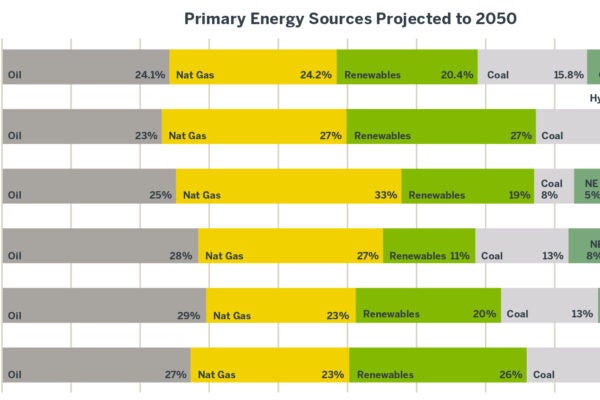SEC’s Terrorism Focus Hinders Financial Oversight
Flagging possible dealings with a state sponsor of terrorism led to missed errors in financial reporting
Based on the research of Matthew Kubic

New research finds that when the U.S. Securities and Exchange Commission flagged a company for possible dealings with a state sponsor of terrorism (SST), it did a worse job of catching errors in the company’s financial reporting. SST countries “have repeatedly provided support for acts of international terrorism,” according to the U.S. Department of State.
“Both issues are important to investors,” says Matthew Kubic, assistant professor of accounting at Texas McCombs and co-author of the study forthcoming in the Journal of Accounting & Economics. “Investors need financial statements that are free from errors to make informed decisions, and they also want to know if company activities provide any kind of support to state sponsors of terrorism. Our research examines how the SEC balances these two challenges.”
Kubic, along with Bill Mayew of Duke University and Robert Hills of Pennsylvania State University, studied more than 17,800 SEC comment letters from 2005 to 2016. The SEC sent these letters to corporations after reviewing their disclosures and financial filings, typically to ask for more information or notify them of errors.
To learn when the SEC missed errors, researchers compared these comment letters with the corporations’ restatements, which provide corrections to their initial filings.
In cases when severe reporting errors were corrected, the researchers found the SEC’s average error-detection rate was 31.1%; that rate dropped to 10.6% when the comment letters included questions about terrorist links. That’s because the SEC focus shifted away from organizations’ core financial reporting to SST issues.
That finding should concern investors, as SEC comment letters are increasingly focused on SST: In 2005, only 2.2% included comments on terrorism, but that number had grown to 8.4% by 2016. During that time, there was a shift in the makeup of the SEC review staff, with the number of lawyers growing while the number of accountants decreased. Accountants were more likely to ask questions about errors in financial filings, and the lawyers to ask about terrorism links, the researchers found.
A 2003 congressional report first drew the SEC’s attention toward restricting U.S. business dealings with SST list countries. The SEC can discover businesses’ ties to SST countries — currently, Cuba, Iran, North Korea, and Syria — either by reviewing financial filings or by searching news and websites about the company and its affiliates. For instance, when Islamic authorities in Iran pulled Barbie dolls from store shelves in 2012 because of immodest clothing, the resulting media attention brought Mattel Inc. under SEC scrutiny for ties to that nation.
When a letter contained a question about SST ties, reviewers were less likely to ask about core financial reporting, which includes topics most associated with financial misreporting.
“When the SEC increases their focus on potential ties to terrorism, while shrinking the number of accountants with expertise in reviewing financial statements, it’s reasonable to ask whether this negatively affects the SEC’s ability to identify incorrect or deficient accounting,” Kubic says.
That’s exactly what Kubic’s research showed. “The increased focus on terrorism appears to come at the expense of financial reporting oversight,” he says.
“State Sponsors of Terrorism Disclosure and SEC Financial Reporting Oversight” is forthcoming, online in advance in the Journal of Accounting & Economics.
Story by Judie Kinonen
About this Post
Share:


